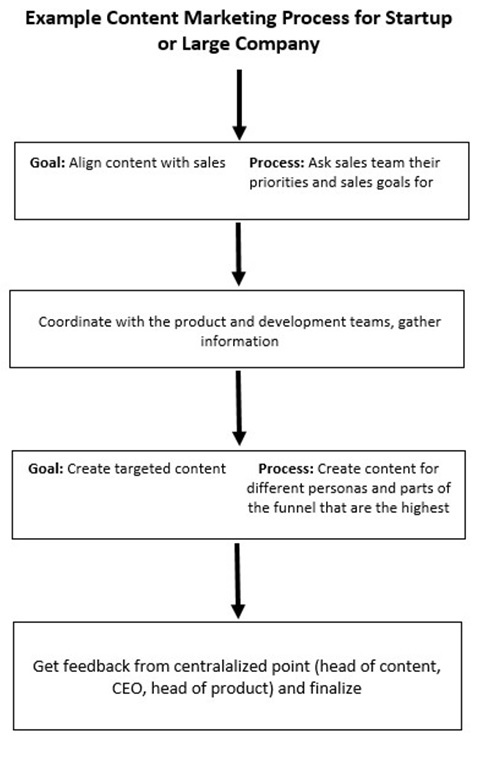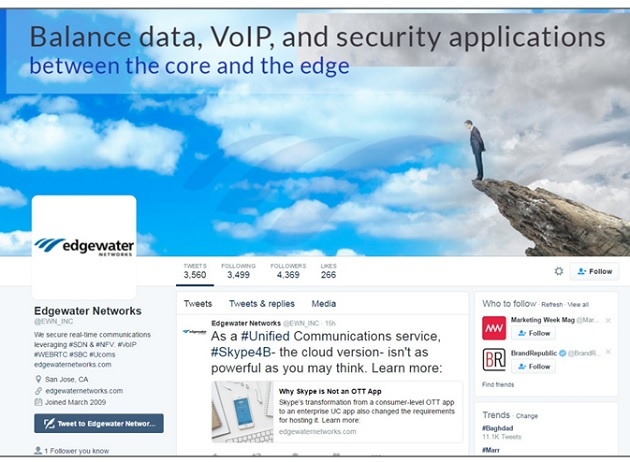I interviewed leading marketing professionals in Israel to learn about their viewpoints working for startups vs. larger organizations.
I've learned a lot from working at different companies in different stages of growth. Although I've mostly worked in startups or companies where the marketing was similar to a startup (in that there wasn't much in place), I often looked to larger companies' marketing for inspiration. That sometimes led to frustration on my part since the company just wasn't at the same place, with the same resources, to implement the same type of strategy.
So, I recently asked two marketers with experience working for companies of different sizes to share what startups could learn from larger companies that might help their content marketing go smoother. Their answers gave me insight and a broader perspective of the types of content marketing strategy that I might be able to implement.
1. Processes can help curb frustration
Although working in content marketing at startups has its advantages in terms of creative license (especially where the marketing team is small), not having an integrated strategy aligned with product and sales can be frustrating.
Yael Kochman, now at Teradata Marketing Applications, worked as head of marketing at Roojoom as well as other previous startups. She found that one solution to avoiding this unnecessary tension would have been to create processes.
"In startups, usually the teams are smaller, and time to market is shorter. Therefore, it may not seem that there's much need to create workflows and processes," states Kochman. "In the corporate world, you simply can't get by without them. Looking backwards at my time at Roojoom, as well as other startups I worked with, I know that having clear processes could have helped me improve performance across the board and avoid unnecessary tension."

2. A more sophisticated content marketing strategy keeps you competitive in your industry's space
Startups are exciting in that you are building a content strategy from the ground up, and depending on the type of product and company culture, there may be little influence from the C-suite. Without this interference, you may have creative freedom and be the one deciding on the type of strategy and seeing the results. All that can be exhilarating.
On the other hand, your content strategy may lack a sophistication within that industry's space.
You might think that it's easier to create brand awareness and demand for a brand that has already existed for a few good years, has a bigger team and more resources. But it isn't always the case, says Kochman about her current experience at Teradata Marketing Applications.
"We work in a very competitive market, completing with strong brands, such as Oracle, IBM, and SAP for the biggest accounts," Kochman says. "They all have the budget and resources, and they've been around at least as long as we have. They all produce great content, so being great is no longer enough. I need to constantly think of ways to dazzle my audience, to make them think, and to answer their questions—even those they might still haven't thought of."
Perry Nalevka, CEO at Penguin Strategies, an inbound marketing agency in both Israel and the US, agrees, although he admits that having a more sophisticated strategy can lead to its own frustrations.
"Large companies usually have a marketing team with more defined roles, which allow them to be more strategic and invest more strategically in content marketing," Nalevka says. "This allows the strategy to be defined better because there is a better knowledge base to lean on and more people (and brains) to include in the process. Managing the process can be more complicated since there is this hierarchy and more people that are in the approval chain which in itself can cause bottlenecks which need management."
In the right startup environment, you might have the creative freedom to implement a more sophisticated strategy (at least more complex than your competition, for example) without the bottlenecks. Be sure to get buy-in from higher management then, depending on the feedback and resources, consider expanding your content team to get started.
3. Data drives content
If you're a large enough company with enough traffic and content assets, you can use data to your advantage.
"After leading a major research project, I am now aware of the enormous affect that data has on your content strategy. It is data that makes your content truly valuable, unique and newsworthy," says Kochman.
She acknowledges that this might be more difficult at startups with fewer resources. Still, she feels using data as part of their content strategy is important.
"Startups can start by looking at their own data as well as collaborating with third-party data or analyzing data that is publicly available. In each industry this might be slightly easier or more difficult, but putting forth the effort will certainly pay off with higher ROMI (return on marketing investment) and lower CPL (cost per lead)."
4. Optimizing your content is important, too
Startups are often building something from nothing, especially in terms of content. But at some point, if you have enough traffic and the resources, you'll need to optimize.
Nalevka agrees. "From my experience, startups will focus first on traffic, leads, and overall conversion rates. On the other hand, established companies already have traffic and will want to focus on optimizing their traffic to increase landing page conversion rates, leads to MQL and overall sales funnel velocity."
5. Sometimes, larger companies are just bigger startups
Larger companies may have marketing departments that function a lot like a startup. That is especially true where the marketing department was recently included or expanded into the corporation. When this is the case, the process can be similar.
Take the case of Nalevka's company with Edgewater Networks, a midsize US company selling session boarder controllers to service providers and enterprises. The company had not done any content marketing prior to May 2014.
"We started by running a discovery process to identify the buyer personas challenges and what the company's unique selling points are. We then built a plan which included rewriting their website to better suit their buyer personas and started a blog that would talk about the issues the buyer personas encounter on a day-to-day basis," he says.

The company also created premium content including whitepapers, e-guides, infographics, and case studies, which allowed it to offer marketing automation. The company implemented HubSpot to allow it to create CTAs, landing pages, email campaigns, and to monitor and optimize. Edgewater Networks was also able to implement social media.

The results, according to Nalevka, were a doubling in its year-over-year growth to 40%. The tactics increased traffic, but more importantly, it allowed the company to convert more of its website visitors into leads. Customers were offered more incentive to stay in touch. As the email campaigns and nurturing were improved, the time to sale was shortened as well.
Carefully consider the right fit for you
Of course, all those insights are suggestions, and they may not be able to be implemented depending on the size, resources, and stage of growth of your startup. Still, it can be worth considering at a later stage.
This article was published on Marketing Profs on August 18, 2016.








 פרסום פרויקט
פרסום פרויקט


 התחבר עם פייסבוק
התחבר עם פייסבוק
 התחבר עם LinkedIn
התחבר עם LinkedIn